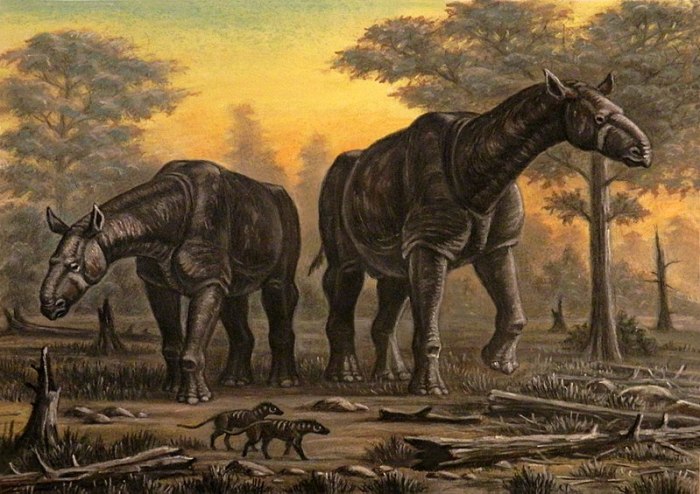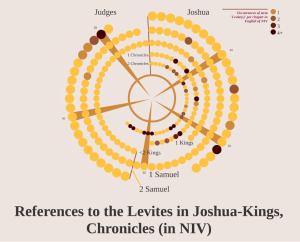My title above is a spin on that of a book I long knew about but only read within the last 12 months, Robert Carroll’s When Prophecy Failed, published back in the 80s. Carroll’s book pointed out a range of OT prophecies that look for all the world unfulfilled. There are some celebrated examples where he is clearly right, such as the prediction in Ezekiel 26 where the word of God predicts Tyre’s utter destruction by Nebuchadnezzar, which was followed at a later date by the prophecy in the final verses of Ezekiel 29 (vv. 18-21) that offer King Neb Egypt as a consolation prize in place of the still-elusive Tyre, which he was unable to conquer despite a long campaign.

I’ve just seen a reference to it in a fairly recent essay by a scholar I quite enjoy reading, Ronald Clements, ‘Prophecy Interpreted…A Case Study in Jeremiah 26:16-24,’ in Uprooting and Planting: Essays on Jeremiah for Leslie Allen, ed. John Goldingay (New York/London: T&T Clark, 2006), 32-44. Here’s an apt comment about Carroll’s proposal in a footnote of Clements (p. 35 n. 3):
“When understood as a message of divine warning, prophecy would not be regarded as having “failed” if those who heard it responded in such a way that the threat could be…revoked.”
Here Clements picks up on a truth seen in prophecy throughout the Old Testament and fundamental to Jeremiah: The freedom of God to respond to human beings overrides considerations of the prophet’s predictive reliability. That is, God is willing to let his prophet be wrong if a threat of doom He has given the prophet to proclaim achieves its main purpose.
That main purpose is not to predict the future.
It is to change the behaviour and attitudes of his people.
If the threat of trouble ahead brings about humility and practical repentance, then the predicted doom need not fall. Check out this programmatic passage from Jeremiah:
7 If at any time I announce that a nation or kingdom is to be uprooted, torn down and destroyed,
8 and if that nation I warned repents of its evil, then I will relent and not inflict on it the disaster I had planned.
9 And if at another time I announce that a nation or kingdom is to be built up and planted,
10 and if it does evil in my sight and does not obey me, then I will reconsider the good I had intended to do for it.
11 “Now therefore say to the people of Judah and those living in Jerusalem, ‘This is what the LORD says: Look! I am preparing a disaster for you and devising a plan against you. So turn from your evil ways, each one of you, and reform your ways and your actions.’
(Jer 18:7-11 NIV)
An inevitable ramification of this is that the prophet will be left out in the cold, as far as being correct about the future! But God will not bind himself to his forecast, hypothetical future, if that means being unable to change course in response to the very change the prophetic message he sent was intended to produce! Theologically, we’re talking about the vital doctrine of the freedom of God.
Oh, and one other key theological issue is at stake: real relationship. No-one who is utterly unable to respond to the opposite party is really in relationship with that other party. The portrayed God of the Old Testament is, as our Jeremiah passage so clearly shows, really very willing to change his planned course of action in response to human changes in their relational stance toward him.
This is very profound and very important, and should be a key part of our personal theologies.
For other vivid OT examples of this principle at work, see:
- The book of Jonah, whose prophetic content is limited to a single verse! And whose single verse of prophecy turns out not to come true! And that because it is warning, it is heeded, and the forecast doom is no longer needed! All to Jonah’s profound displeasure, but let no-one fail to appreciate what a radical and profound little book this is!
- 1 Sam. 2:30, where the LORD says of Eli’s priestly family:
“Therefore the LORD, the God of Israel, declares: ‘I promised that members of your family would minister before me forever. ‘ But now the LORD declares: ‘Far be it from me! Those who honor me I will honor, but those who despise me will be disdained.” (NIV)
- And Clements’ own example, Jeremiah 26:18-19, where the prophet Micah’s long-past prediction that Jerusalem would be so thoroughly destroyed that it would be like a ploughed rural hilltop is raised as an example of a prophetic word that did not come to pass because its hearers responded in repentance as intended.
There are many others. The book of Jeremiah makes clear that prophetic prediction was not always meant to fail. There comes a clear turning point in Jeremiah’s ministry where the forecast doom was no longer a warning, but an inevitability, and those who tried to avoid the sentence of God, e.g. by resisting the Babylonian advance, were just prolonging their own pain. But this other side of the prophetic coin might just open our minds to the multifaceted purposes of OT prophecy, and to a neglected side of biblical theology.

 [Raoul Van Coneghem, 28/01/2016, Wikimedia Commons]
[Raoul Van Coneghem, 28/01/2016, Wikimedia Commons]




